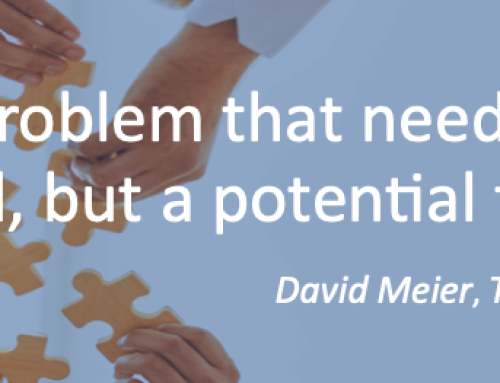For the past few years, I’ve had the opportunity to work with teams and facilitate sessions using psychometric assessment tools, such as DISC, to tackle themes, such as team cohesion and communication.
While those personality tools are a wonderful way to open the team’s communication lines, the sessions often leave me with the feeling that we’ve only just scratched the surface, and that there is so much more to explore in order to help team members overcome roadblocks and reach their goals.
In today’s climate, many teams struggle with chronic challenges, such as:
- Lack of purpose
- Lack of communication
- Lack of direction and leadership
- Lack of motivation
- Team members feeling misunderstood or not heard
- Navigating the hybrid jungle
Traditional methods of intervention to help transform teams, such as training, facilitation, mentoring, etc. can only go so far, as they are often excessively facilitator-focussed, formulaic, as well as constrained by a short timeline dotted by equally stringent metrics.
There simply is no time for gaining and cultivating awareness, which, in my view, is the foundation of transformation.
As a result, I find that outcomes for the teams are superficial and not sustainable over the long term. Oftentimes, I’m left feeling bereft of the opportunity to go deeply into the root system of the team, and to let members articulate their inherent needs and challenges, as well as come up with their own brilliant course of action towards a better outcome.
This is where Team Coaching comes in. According to the Team Coaching Studio’s definition, Team Coaching is:
“Partnering with a team to unleash its collective power, purpose, and potential to connect and collaborate.”
In other words, Team Coaching is a unique type of intervention that allows a coach – and oftentimes 2 co-coaches – to journey alongside the team and help it unleash its very own transformative potential by creating greater awareness and empowerment for all members.
This may sound a little esoteric or passive, but it’s not, for in Team Coaching, the team does all the heavy lifting. In Team Coaching, the co-coaches create the container in which team members build trust and alignment. The team can then begin to connect and interact better in order to remove barriers to team performance and achieve results.
One of the things I really value about Team Coaching is the presence of two co-coaches. Having two observers present during a Team Coaching intervention allows for a rich and variegated perspective for the team, and the ability to create much more profound and sustainable change for the organization.
I myself look forward to further exploring the power of Team Coaching with my colleague, Louise Dufresne, Ph.D and certified Team Coach.
If you are interested in finding out more, Louise and I will be giving a talk on Team Coaching at The Learning Centre, 150 Elgin Street, Ottawa, on September 7, at 12 pm.
We’ll also be presenting on the same topic at ICF Quebec, Hotel Mortagne, Boucherville, on September 12 and 13.
Looking forward to this new chapter!
References:
Deloitte. (2019). Coaching for the 21st-century workplace. https://www2.deloitte.com/us/en/insights/focus/human-capital-trends/2019/coaching-for-21st-century-workplace.html
International Coaching Federation (ICF). (2020). Building a coaching culture with team coaching. https://coachfederation.org/research/building-a-coaching-culture-with-team-coaching
Korn Ferry Institute. (2018). The impact of high-performing teams. https://www.kornferry.com/content/dam/kornferry/docs/pdfs/ampersand/the-impact-of-high-performing-teams.pdf
McGovern, J., Lindemann, M., & Vergara, M. (2019). ROI in team coaching: Case studies from the real world. International Coaching Psychology Review, 14(1), 47-61.
PwC. (2019). 2019 Global coaching study: Executive summary. https://www.pwc.com/us/en/about-us/corporate-responsibility/assets/coaching-survey-2019-exec-summary.pdf
Rogers, C. A., Rogers, P., & Page, N. (2021). The impact of team coaching on team productivity: A quasi-experimental study. Consulting Psychology Journal: Practice and Research, 73(2), 125-138.



